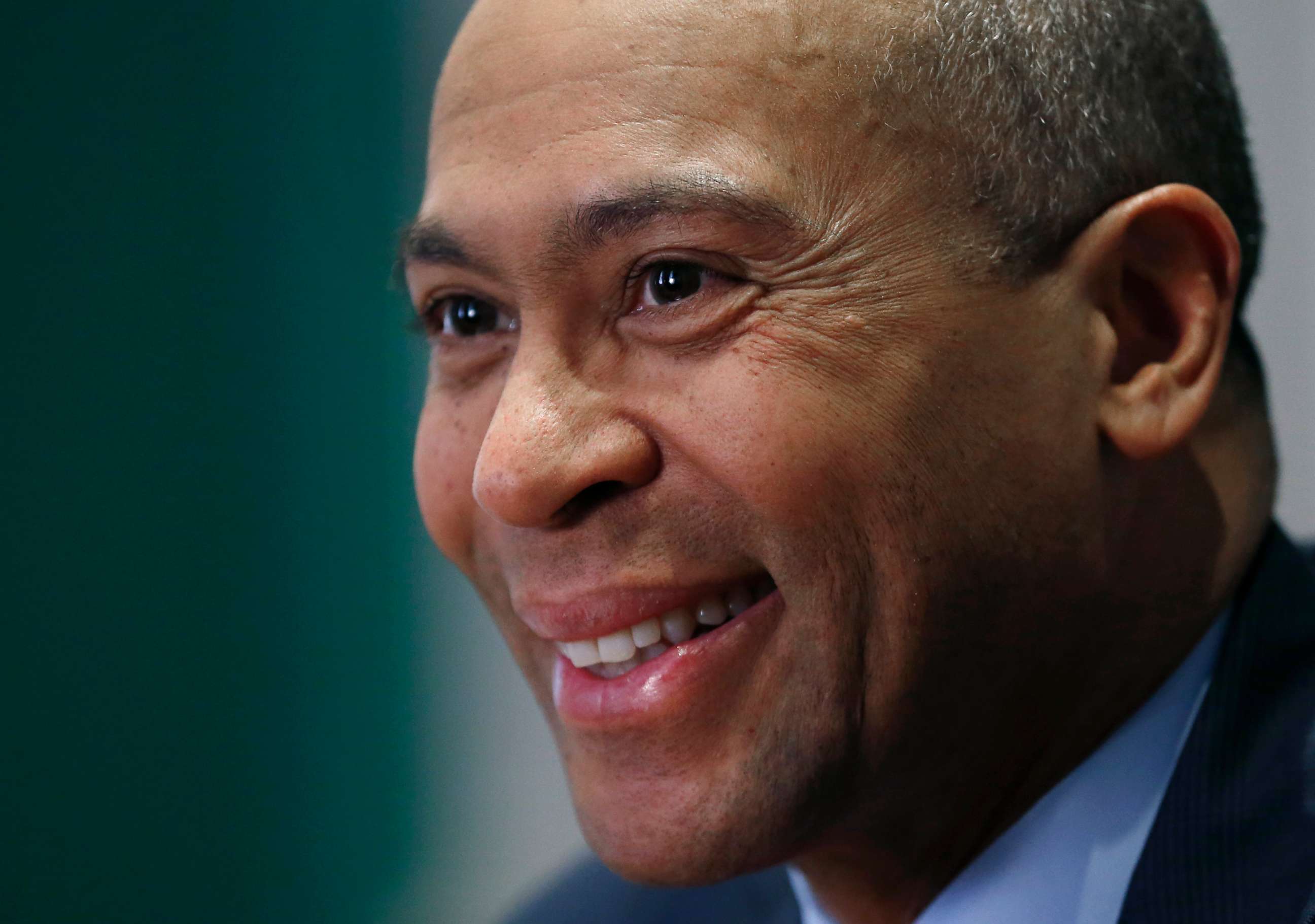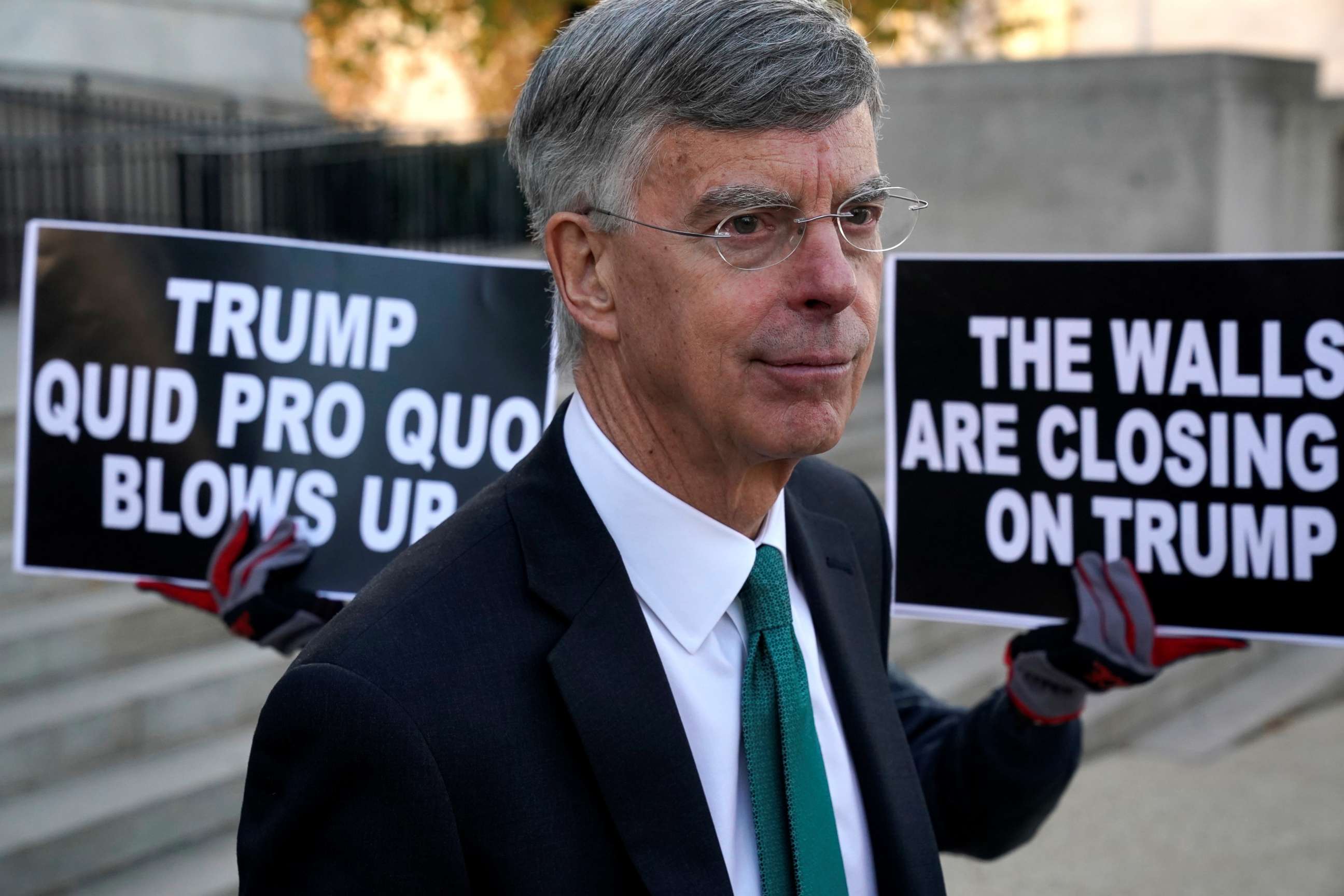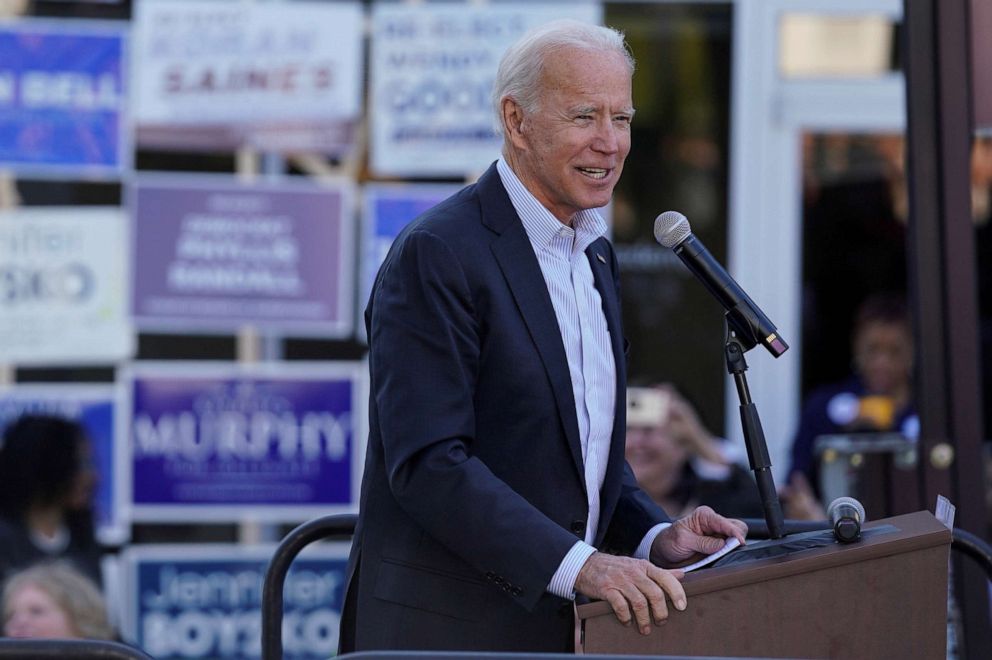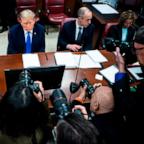The Note: Expanding 2020 field speaks to Democrats' angst vs. Trump
This season of candidate contraction has turned into one of expansion.
The TAKE with Rick Klein
This season of candidate contraction has turned into one of expansion.
Former Gov. Deval Patrick is expected to announce a presidential run on Thursday morning, with a trip to New Hampshire to file for the primary ballot later in the day.

Former Mayor Michael Bloomberg and his billions loom behind him, with an announcement possible as soon as next week.
Such moves are the prerogatives of those who make them. But they also speak loudly about the state of the Democratic Party a year before the election.
Interest in Patrick and Bloomberg -- plus among the "many, many, many people" who Hillary Clinton says are urging her to run -- reflect anxiety about the ability of an overstuffed field to sort itself out. For all the Democratic unity on display in impeachment hearings, concerns about defeating President Donald Trump remain urgent and divisive.
Nothing guarantees a late entry a seat at the table -- or a podium at the debates, with next week's in Atlanta already excluding nearly half of the declared field. Patrick, in particular, will have to raise money at a record clip, and won't have Bloomberg's name recognition or deep pockets to rely on.
Democrats were largely fans of the unprecedented diversity in their huge presidential field. But at some point the quantity of candidates will say more about the party than many are comfortable revealing.
The RUNDOWN with MaryAlice Parks
Republicans on Wednesday defended Trump by attempting to argue that his team would have been justified in stalling or conditioning U.S. diplomatic support or aid to Ukraine. After all, the president is the nation's head of state -- the commander in chief.
But the diplomats called to testify in the first public impeachment hearings remained skeptical. Ambassador William Taylor was having none of the spin.

"Our holding up of security assistance that would go to a country that is fighting aggression from Russia for no good policy reason, no good substantive reason, no good foreign -- national security reason, is wrong," Taylor told lawmakers.
When asked if the president's language on the call with Ukraine sounded like a part of a larger, anti-corruption program, State Department official George Kent said no. Kent agreed, of course, that corruption in Ukraine was a problem -- in fact, he has been working on it for years -- but said it was "clear" to him that the actions of Trump's personal associates were "politically motivated."
All the back and forth raised more questions for the president and his White House team. If Trump thought Ukraine was too corrupt or undeserving of U.S. aid, why did he not take the constitutional mechanism given to him and veto the spending bill? Why did his acting chief of staff not say publicly that they were unsure about delivering the aid?
Still, the Republican tactic -- to reorient conversation to one about the president's foreign policy -- could be highly effective in muddying the waters for Democrats.
The TIP with John Verhovek
His name was mentioned early and often during the first day of public impeachment hearings, but former Vice President Joe Biden was mostly absent from the public view on Wednesday.
"Today's impeachment hearings only add to the evidence that Trump's only real priority in Ukraine was to smear me -- not fight corruption," Biden wrote in a fundraising email shortly after the hearings wrapped. His campaign also launched a new website entitled, "thefactsfolks.com" in an attempt to counter Trump and congressional Republicans' narrative that seeks to keep him and his son, Hunter, front and center in the impeachment drama.

But for Biden and his campaign, figuring out an effective response to Trump's attacks on his family -- attacks will only be amplified and repeated with each successive public hearing --has proven to be an arduous task with no clear solution.
As the only person who remains both a Democratic presidential candidate and a central figure in the House's impeachment inquiry, Biden's strategy of laying low and allowing the proceedings to move forward may not assuage concerns among skittish party insiders who now have two new candidates hoping to occupy the moderate lane that the former vice president has, thus far, had mostly to himself.
ONE MORE THING
The House on Wednesday convened its first impeachment hearing in more than 20 years. Testifying was William Taylor, the top U.S. diplomat in Ukraine, and George Kent, the State Department's top career official tasked with Ukraine policy. Here are the key takeaways.
THE PLAYLIST
ABC News' "Start Here" Podcast. Thursday morning's special edition of "Start Here" episode features a full recap of Wednesday's public impeachment hearing. ABC News' David Muir, Mary Bruce and Karen Travers break down the big moments, while ABC News legal analysts Dan Abrams and Kate Shaw examine the strategy from both sides. http://apple.co/2HPocUL
ABC News' "Powerhouse Politics" Podcast. ABC News Political Director Rick Klein and ABC News Radio correspondent Aaron Katersky recap the big takeaways from the first day of House impeachment hearings. https://apple.co/2Zfz5nD
WHAT YOU NEED TO KNOW TODAY
Download the ABC News app and select "The Note" as an item of interest to receive the day's sharpest political analysis.
The Note is a daily ABC News feature that highlights the key political moments of the day ahead. Please check back tomorrow for the latest.




